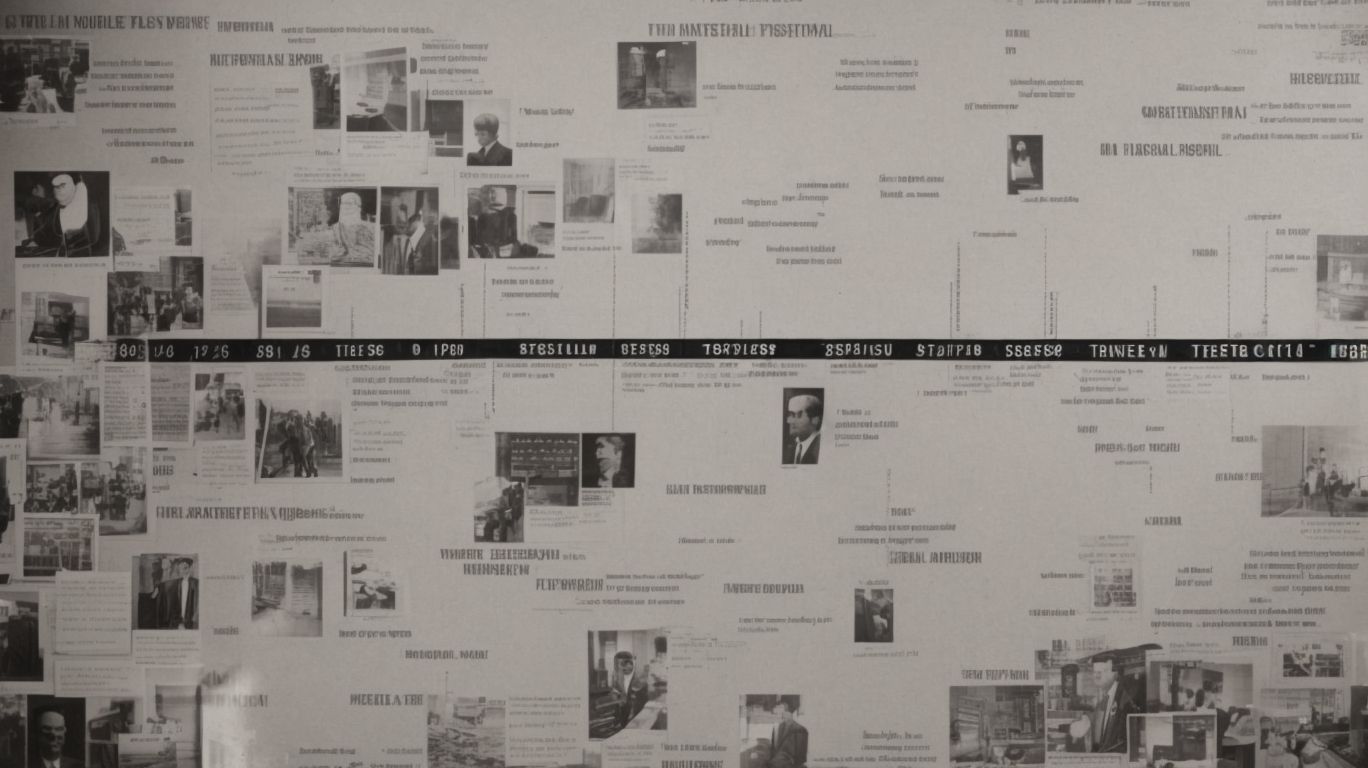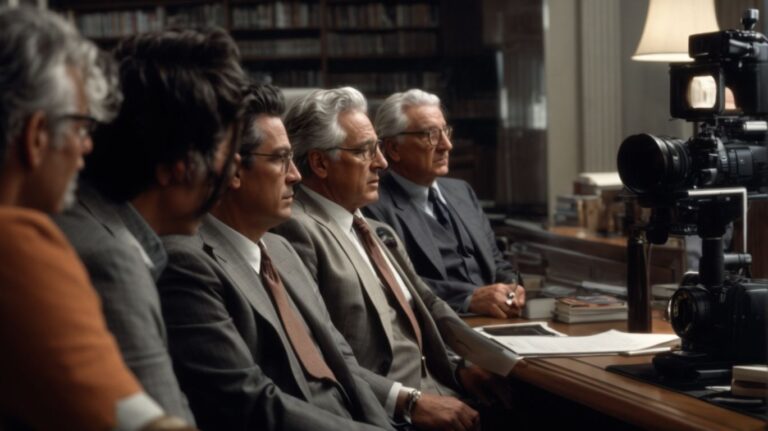Stereotypes have long been a prominent issue in society, influencing various aspects of our lives, including forensic psychology. This article explores the history of stereotypes in forensic psychology, from early studies in psychology to their impact on the criminal justice system.
We will delve into how stereotypes affect forensic assessments, jury selection, forensic evaluations, and sentencing decisions. We will discuss strategies to challenge stereotypes in forensic psychology, such as diversity training and promoting cultural competence. Join us as we work towards a more equitable forensic psychology practice.
Contents
What are Stereotypes?
Stereotypes, as studied in psychology, are generalized beliefs about specific social groups or categories, often based on assumptions rather than individual characteristics.
Types of Stereotypes
Various types of stereotypes exist, ranging from cultural to gender-based stereotypes, shaping perceptions and interactions within society.
These stereotypes are deeply ingrained in social constructs and can influence how individuals are perceived and treated based on preconceived notions tied to their cultural background or gender identity.
Cultural stereotypes, for instance, may lead to assumptions about one’s values, traditions, and behavior solely based on their ethnicity or nationality. Similarly, gender stereotypes can impact opportunities, expectations, and roles assigned to individuals, often limiting their choices and potential for personal or professional growth.
The History of Stereotypes in Forensic Psychology
The history of stereotypes in forensic psychology delves into the evolution of societal biases and their implications within legal contexts.
Early Studies on Stereotypes in Psychology
Early studies on stereotypes in psychology date back to the foundational works of Greek philosophers and pioneering psychologists, shedding light on the origins of social categorization.
Notably, Plato and Aristotle delved into the concept of stereotypes by exploring how individuals make sense of the world through cognitive schemas. Plato, in his dialogues, discussed prejudice and preconceived notions, highlighting the impact of upbringing on one’s perception of others. Aristotle, on the other hand, emphasized the role of social norms in shaping stereotypes.
Transitioning to modern psychology, the pioneering work of Wilhelm Wundt in establishing the first psychology laboratory in 1879 marked a significant advancement in understanding stereotypes.
Stereotypes in the Criminal Justice System
Stereotypes play a significant role in the criminal justice system, influencing decisions related to profiling, sentencing, and legal outcomes.
When individuals fall victim to stereotyping within the legal framework, their treatment may not align with the principles of fair justice. This phenomenon can lead to inherent biases in decision-making processes, potentially resulting in wrongful convictions and unfair sentencing.
Societal perceptions of certain groups can be shaped by prevailing stereotypes, impacting the overall trust in the justice system. These biases can be rooted in psychological mechanisms such as cognitive shortcuts and social categorization, perpetuating discrimination within legal contexts.
Understanding the impact of stereotypes on the criminal justice system is crucial for fostering a more equitable and just legal environment that upholds the rights of all individuals, regardless of societal labels or preconceptions.
The Role of Stereotypes in Forensic Assessments
Stereotypes can influence forensic assessments through the lens of neurocognitive mechanisms, affecting the evaluation and interpretation of evidence.
These preconceived notions can lead evaluators to inadvertently focus on information that confirms the stereotype, potentially overlooking critical details that are inconsistent with these biases. When stereotypes are activated during assessment processes, they may alter memory recall by influencing which details are deemed salient and retrievable, affecting the overall accuracy of the findings. These ingrained biases can seep into the judgment phase, impacting how the evaluator weighs and interprets the evidence presented, potentially leading to skewed conclusions.
How Stereotypes Affect Forensic Psychology Practices
The influence of stereotypes on forensic psychology practices extends to biases in jury selection, forensic evaluations, and sentencing decisions, shaping legal outcomes.
Biases in Jury Selection
Biases in jury selection can be influenced by preconceived notions and stereotypes, affecting the composition and decision-making processes within legal trials.
Psychological studies have shown that when individuals are categorized based on stereotypes, it can lead to unconscious biases that impact their judgment and decision-making. These biases may manifest in how jurors interpret evidence, evaluate witness credibility, and ultimately reach a verdict. Such stereotypes can be deeply ingrained in societal attitudes and can influence perceptions of guilt or innocence before any evidence is presented in court. The legal system grapples with the challenge of ensuring a fair and impartial jury selection process despite the presence of these inherent biases.
Influence on Forensic Evaluations
Stereotypes can influence forensic evaluations by shaping the perception of evidence, witness testimonies, and the assessment of criminal behavior.
These preconceived notions or biases can lead to partiality in evaluating the collected evidence, potentially skewing the overall analysis of a case. For instance, if a forensic expert holds a stereotype about a certain demographic group, it may influence how they interpret physical evidence or the credibility they attribute to a witness from that group.
Stereotypes can also inadvertently affect the objectivity of criminal behavior assessment, as professionals may unconsciously rely on these ingrained beliefs when determining motives or intentions behind an act.
By acknowledging and actively working to mitigate the impact of stereotypes in forensic assessments, professionals can strive towards more fair and accurate evaluations, ensuring that justice is served objectively and without undue biases.
Impact on Sentencing Decisions
Stereotypes play a role in sentencing decisions, influencing judgments related to guilt, sentencing lengths, and rehabilitative measures within the legal system.
These preconceived notions based on factors such as race, gender, or socio-economic status can significantly impact the outcomes of court cases and the subsequent treatment of individuals within the justice system. Studies have shown that individuals from marginalized groups often face harsher sentences due to these biases, leading to disparities in legal sentencing practices.
Addressing these stereotypes is crucial to ensure fair and just legal proceedings, as they can hinder the effectiveness of rehabilitation programs and contribute to recidivism rates. By challenging and dismantling these stereotypes, forensic psychologists and legal professionals can work towards creating a more equitable and unbiased legal system.
Challenging Stereotypes in Forensic Psychology
Challenging stereotypes in forensic psychology involves implementing interventions to address biases, promote cultural competence, and enhance the fairness of legal procedures.
Diversity Training for Forensic Professionals
Diversity training for forensic professionals aims to enhance awareness of stereotypes, promote inclusivity, and foster a more equitable legal environment.
By engaging in diversity training, forensic professionals acquire the tools to challenge their own preconceived notions and biases, creating a more objective and fair evaluation process. This training not only equips them with the skills to recognize and mitigate unconscious biases but also cultivates a deeper understanding of different cultures and backgrounds, leading to more culturally sensitive interactions with clients and colleagues alike. Such initiatives are crucial in improving the overall quality and reliability of forensic assessments, ensuring that they are conducted with integrity and respect for all individuals involved.
Promoting Cultural Competence in Forensic Assessments
Promoting cultural competence in forensic assessments involves understanding diverse perspectives, addressing stereotypes, and ensuring fair treatment for all individuals within legal contexts.
By recognizing the impact of cultural background on behavior and mental health, professionals can tailor their assessments and interventions to respect individual differences and promote inclusivity. Culturally competent forensic psychologists strive to conduct evaluations that are free from biases, rooted in evidence-based practices, and sensitive to the unique needs of each person they encounter.
Addressing Stereotypes in Legal Procedures
Addressing stereotypes in legal procedures requires a systematic approach to identify, challenge, and eliminate biases that may impact legal decision-making and outcomes.
One effective strategy to combat stereotypes in legal processes involves promoting diversity and inclusion within the legal system. By creating a more diverse pool of legal professionals and decision-makers, different perspectives and experiences can be brought to the table, reducing the influence of biased judgments.
Implementing training programs and unconscious bias workshops for legal professionals can also play a significant role in increasing awareness of preconceived notions and stereotypes that may affect their judgments. These programs can help individuals recognize their own biases and equip them with tools to make more objective decisions.
The utilization of technology such as AI algorithms and data analytics in legal proceedings can help minimize the impact of subjective biases. These tools can analyze data objectively and provide insights that are not influenced by stereotypes or preconceptions.
Conclusion: Moving Towards a More Equitable Forensic Psychology
The journey towards a more equitable forensic psychology involves confronting stereotypes, implementing interventions, and fostering a legal system that upholds fairness and justice for all.
Challenging stereotypes within forensic psychology requires a deep-rooted shift in societal perceptions and biases. Addressing these preconceived notions involves promoting diversity and inclusivity both in the field and in professional practice. By moving beyond traditional narratives, psychologists can pave the way for a more comprehensive understanding of individuals involved in legal processes.
Introducing targeted interventions aimed at reducing disparities and promoting equal treatment is crucial in creating a more just system. By advocating for evidence-based practices and culturally sensitive approaches, professionals can mitigate the impact of bias and ensure fair outcomes for all individuals interacting with the legal system.
Advocating for a legal framework that prioritizes equity and fairness is paramount in reshaping the landscape of forensic psychology. By pushing for reforms that promote transparency, accountability, and human rights, professionals can contribute to a system that is truly just and equitable.
Frequently Asked Questions
1. What is meant by the title ‘Tracing the Origins of Stereotypes in Forensic Psychology: A Historical Perspective’?
This title refers to a study or analysis of the origins of stereotypes in the field of forensic psychology from a historical viewpoint. It aims to understand how these stereotypes were formed and how they have evolved over time.
2. How can studying the historical perspective of stereotypes in forensic psychology be beneficial?
By studying the historical perspective of stereotypes in forensic psychology, we can gain a deeper understanding of how these stereotypes have influenced the field and how they continue to impact it today. It can also help us recognize and address any biases or misconceptions that may exist.
3. Are stereotypes in forensic psychology a recent phenomenon?
No, stereotypes in forensic psychology have existed for a long time and can be traced back to the early years of the field. However, they have evolved and changed over time, and continue to do so.
4. What are some common stereotypes in forensic psychology?
Some common stereotypes in forensic psychology include the belief that all criminals are mentally ill, that certain races or ethnicities are more prone to criminal behavior, and that forensic psychologists are only needed in high-profile cases.
5. How have these stereotypes impacted the practice of forensic psychology?
These stereotypes can have a negative impact on the practice of forensic psychology, as they can lead to biased assessments and judgments that go against the principles of objectivity and fairness. They can also perpetuate stigma and hinder the rehabilitation of individuals involved in the criminal justice system.
6. How can we address and challenge stereotypes in forensic psychology?
One way to address and challenge stereotypes in forensic psychology is through education and awareness. By constantly questioning and examining our own beliefs and biases, we can work towards breaking down these stereotypes and promoting a more accurate and fair understanding of the field.




